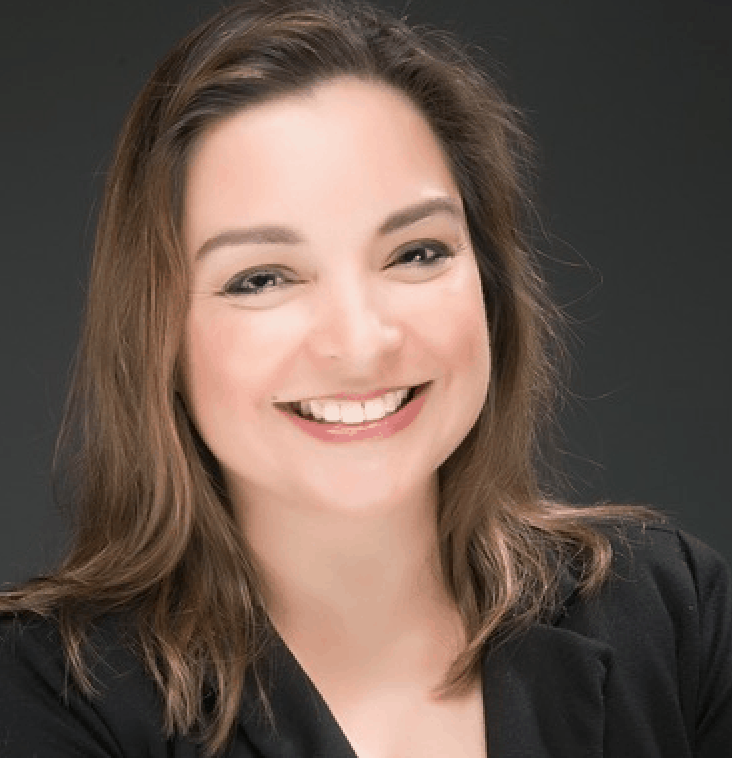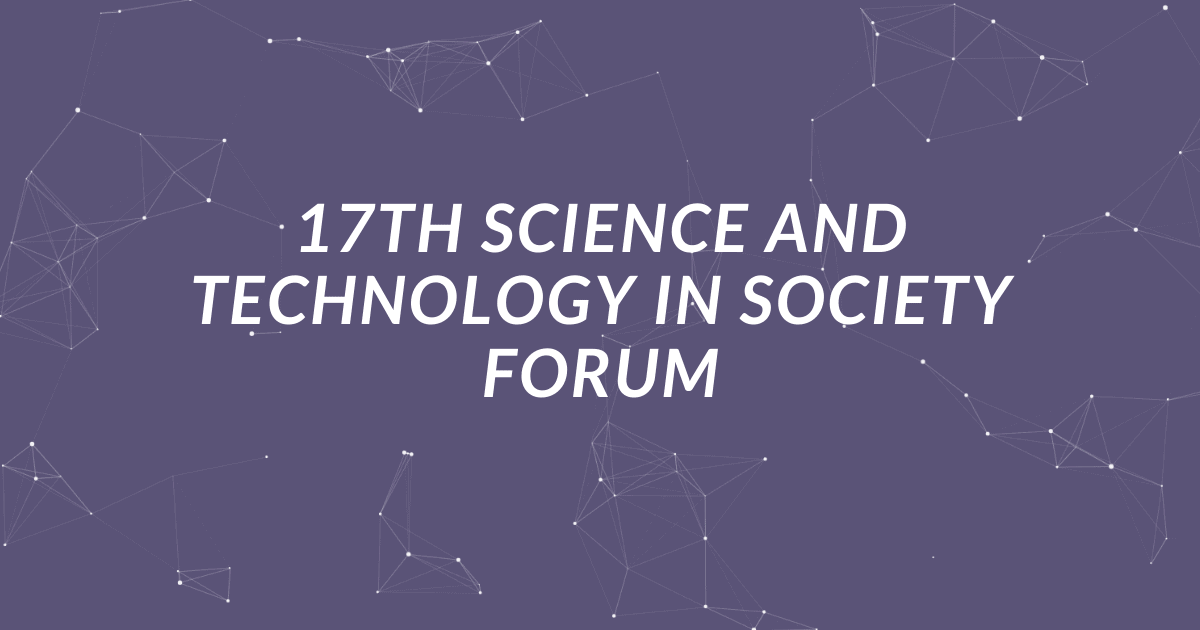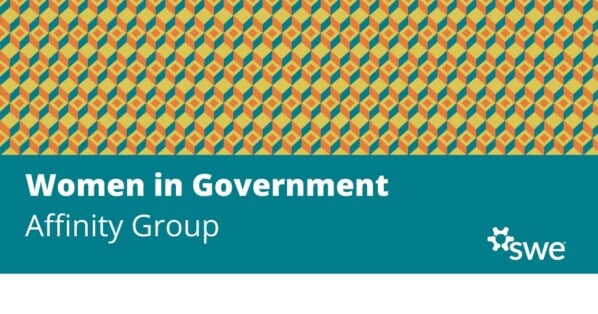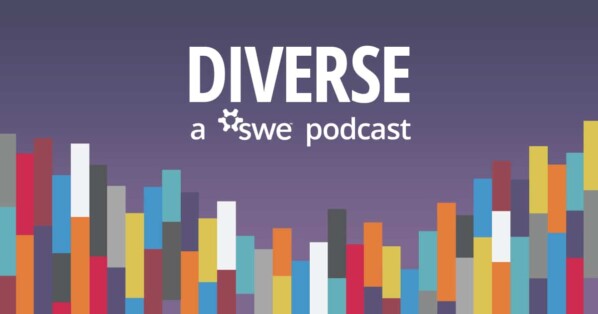The Henry B. Luce Foundation extended an invitation to SWE’s Senior Manager of Research to attend the 17th annual Science and Technology in Society (STS) forum in early October. Held each year in Japan, this year’s event was a virtual experience for over 1,100 registrants to explore opportunities that science and technology present to tackle global issues facing humankind. Representatives from around the world came together to listen to expert panelists on topics ranging from sustainability to information governance to global health in the wake of the coronavirus pandemic.
As SWE’s representative during this event, I wanted to share a few highlights from some of the STS forum sessions that I felt would resonate with our members.
Sustainable Society
“It is the [society] most adaptable to change,” not the smartest, that will come out ahead, stated Tseh Yuan Lee, President Emeritus of Academia Sinica in Taiwan. “It will not be safe anywhere until it is safe everywhere.” Following these observations, Sally Benson, an energy engineering professor at Stanford University, noted that we need to change how we view protecting the environment. We need to change how we think about sustainability, which requires changing norms, or having a “change of heart.”
Johan Rockström, Director at Potsdam Institute for Climate Impact Research in Germany, was more direct. He stated that we have to cut global emissions by ½ in 10 years, or we will lose this battle, and this level of reduction cannot happen without government regulations. Europe has set the pathway for decarbonizing in law. And while a change of heart and educating our populace is important, we do not have time to wait – we must act now.
Matthias Kleiner, President of Leibniz Association in Germany and the panel chair, closed this session with the most vital takeaway: Sustainability is not a problem that can be fixed by a single country or a single region. It requires an international response.
Science and Technology in COVID-19 Pandemic
Those attending this session had the opportunity to hear from two experts knee-deep in the science and communication surrounding the pandemic response. Dr. Anthony Fauci, Director of the U.S. National Institute of Allergy and Infectious Diseases discussed the issue of false equivalency, noting that the public is having a difficult time determining what to believe. When two people say two different things, and the general public cannot determine how to weigh them (what is considered an “expert” opinion), the public often considers these opinions as equal.
Dr. Kathleen Hall Jamieson, a professor and Director of the Annenberg Public Policy Center at the University of Pennsylvania, discussed the public’s misunderstanding of the scientific process. Science is iterative, and science builds upon failures. Science is all about “this is what we know now,” and it is difficult for many people to be patient during this process.
Global Governance of Information
Panelists highlighted the need to build a broad global framework that enables the trustworthy and ethical collection and use of personal data. André Kudelski, Chairman and CEO of the Kudelski Group, Switzerland, stated that “classical regulations” at the country or regional levels come too late to work globally – communication (i.e., data sharing) has no borders. A new framework needs to be established that is flexible, supports, and builds on collaboration between public and private organizations.
Sudip Parikh, CEO of the American Association for the Advancement of Science in the U.S., said that information dissemination is often slow. Research publications require time for curation and releasing non-curated research to meet the need for speed results in greater misinformation. Herbert Hugh Thompson, a Managing Partner at Crosspoint Capital Partners in the U.S., spoke about the ethical issues surrounding the use of data. Morality is not baked into algorithms, and we often take data that was collected for one purpose and use it for another. We need more cross-discipline collaboration to help us understand the best and ethical uses of data.
Jun Murai, a professor at Keio University in Japan, expressed the need for an international approach to the ethical and moral imperatives surrounding data collection and use. We need a place to discuss and share ideas and best practices, involving both public and private organizations.
Promoting Inclusive Participation in Science and Technology
Panelists explored the drivers and barriers to achieving diverse participation in science and technology. Tanya Monro, Chief Defence Scientist at the Department of Defence in Australia, stated that this is not a women’s issue. She sees the COVID-19 pandemic as an opportunity to reinvent how we work. We must put more trust in our people and focus more on outcomes versus perceptions.
Mariko Silver, President of the Henry Luce Foundation in the U.S., said that “the future that we want is not possible with the system that we have.” We tend to look at current scientists when we consider diversity and inclusion, but it is really a societal question: What does it mean to be successful or not successful? We tend to recreate what we already have because our decisions are based on what we value.
Sawako Shirahase, a professor at The University of Tokyo in Japan, discussed gender discrepancies. Opportunities are not equally distributed, and it has been hard to convince the Japanese people that extra opportunities for particular groups are necessary. It tends to come down to issues of “fairness.”
Ada Yonath, a professor at the Weizmann Institute of Science in Isreal and a 2009 Nobel Laureate in Chemistry, stated that we must focus on excellence, not numbers of women. We need to change perceptions of science so that girls are attracted to these fields.
Mariko Silver’s closing remarks focused on the need to think about diversity as core to excellence. We often think of diversity as supplemental. We have to look at changing our ways of thinking so that we can address embedded issues in our systems.
I very much appreciated the opportunity to participate in this global and interdisciplinary forum of exceptional scientists and world leaders in policy, academia, and industry.
Related Content:
- Join SWE’s Research Manager on a Dialogue on Diversity Webinar for COVID19
- SWE’s Researcher Contributions to National Conversations Convenings Held by NASA, NSF, and Emerging Researchers National (ERN) Conference in STEM
- Key Findings from SWE FY20 Member Survey
Author
-

Roberta Rincon oversees SWE's research activities on gender equity issues affecting girls and women in engineering, from school to career.






